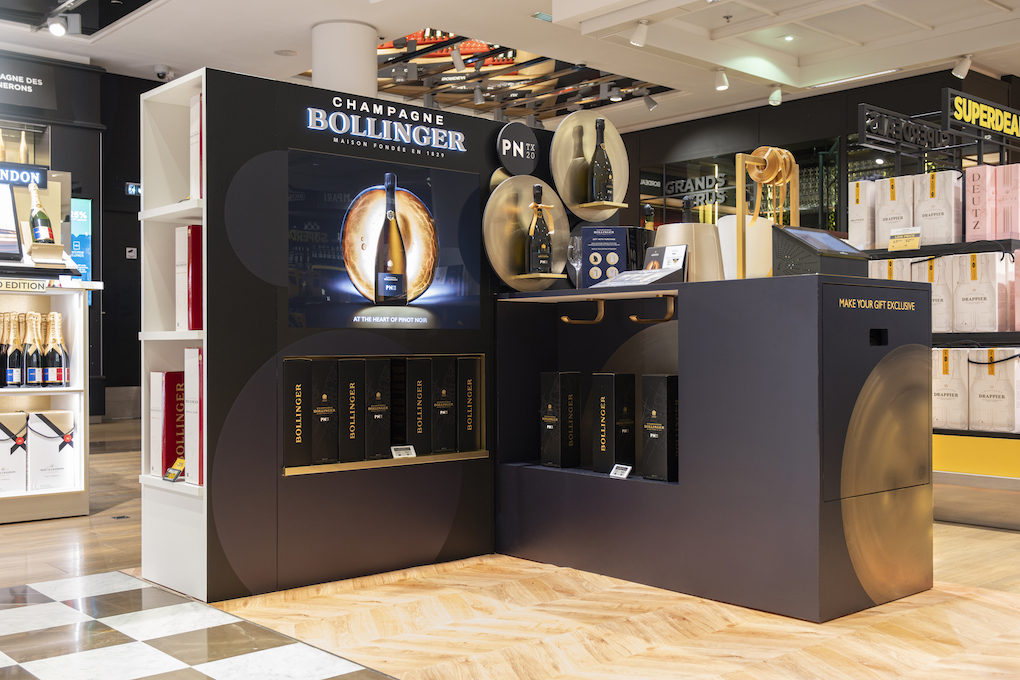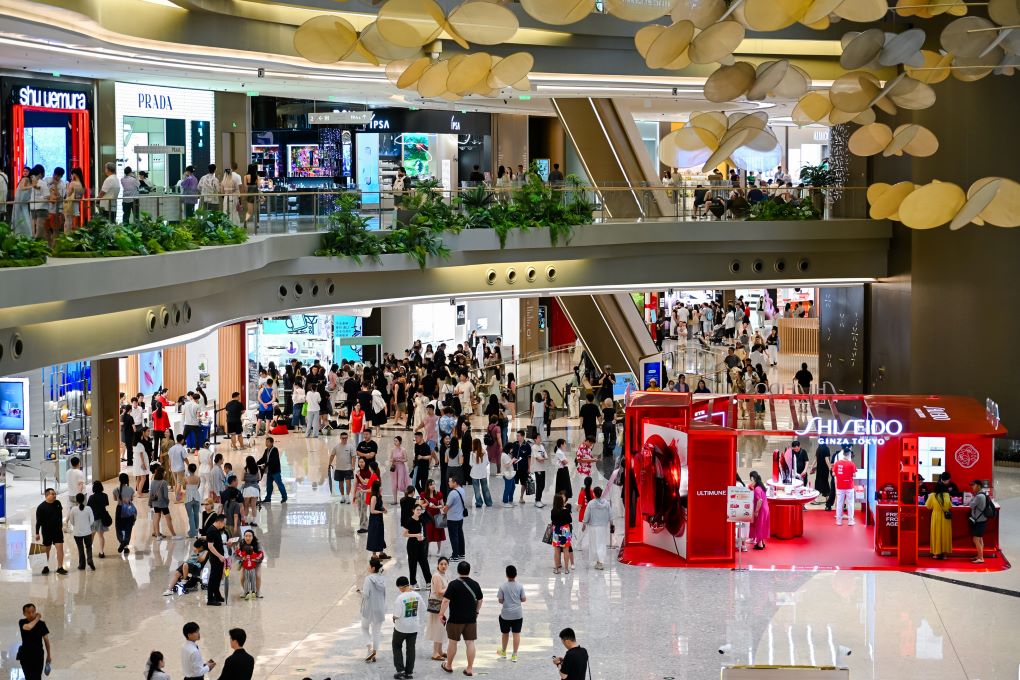NETHERLANDS. Schiphol Group and Lagardère Travel Retail say they have set “ambitious sales targets” for their new duty free partnership at Amsterdam Airport Schiphol and spoken candidly about the benefits that the joint-venture arrangement can deliver for each party and for travelling consumers.
As reported, Schiphol Group recently named Lagardère Travel Retail as its partner to manage all core category duty free retail spaces at Schiphol, following a competitive tender. The contract covers more than 20 stores and combines perfumes & cosmetics and sunglasses spaces with those dedicated to liquor, tobacco & confectionery.
Under the agreement, Lagardère Travel Retail will acquire 70% of the company that will operate the business, with the remaining 30% held by Amsterdam Schiphol Airport.
Speaking with The Moodie Davitt Report, Schiphol Group Director Commercial Terminal Tim de Bie and Lagardère Travel Retail Vice President of Business Development Baptiste Duguit said the move extended the companies’ decade-long relationship and that the new agreement would be a central platform for Schiphol’s wider transformation.
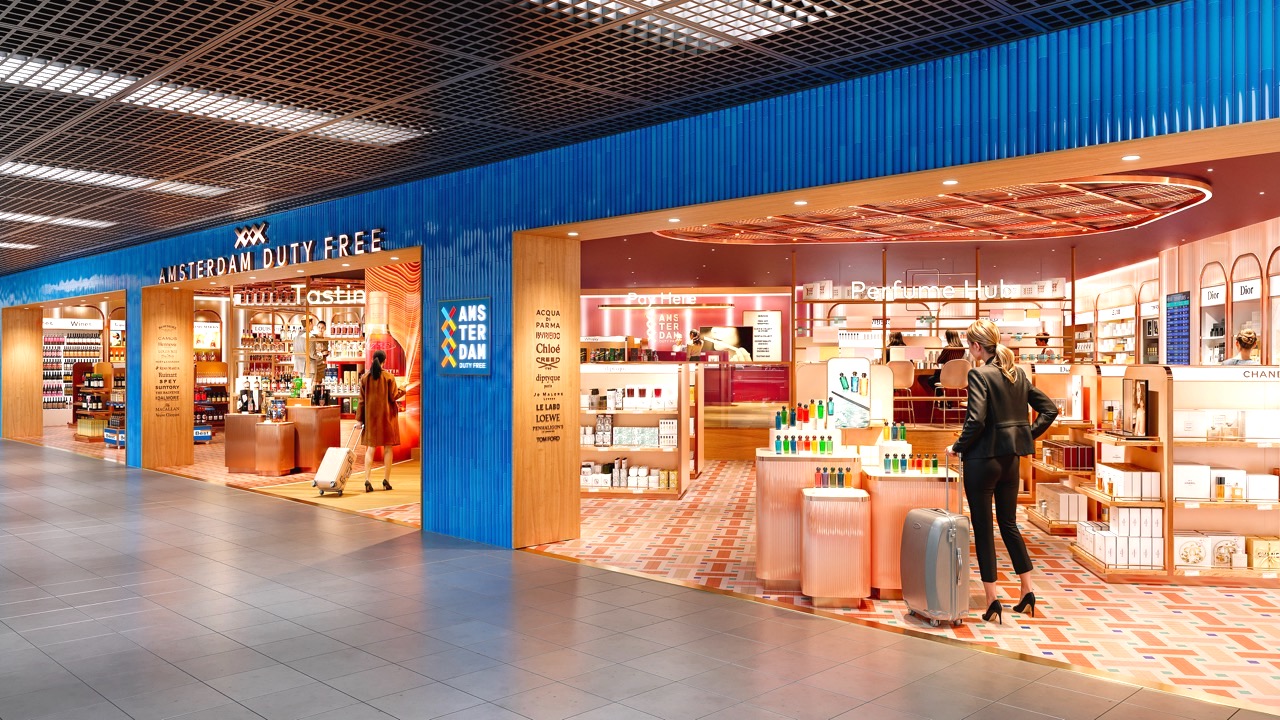
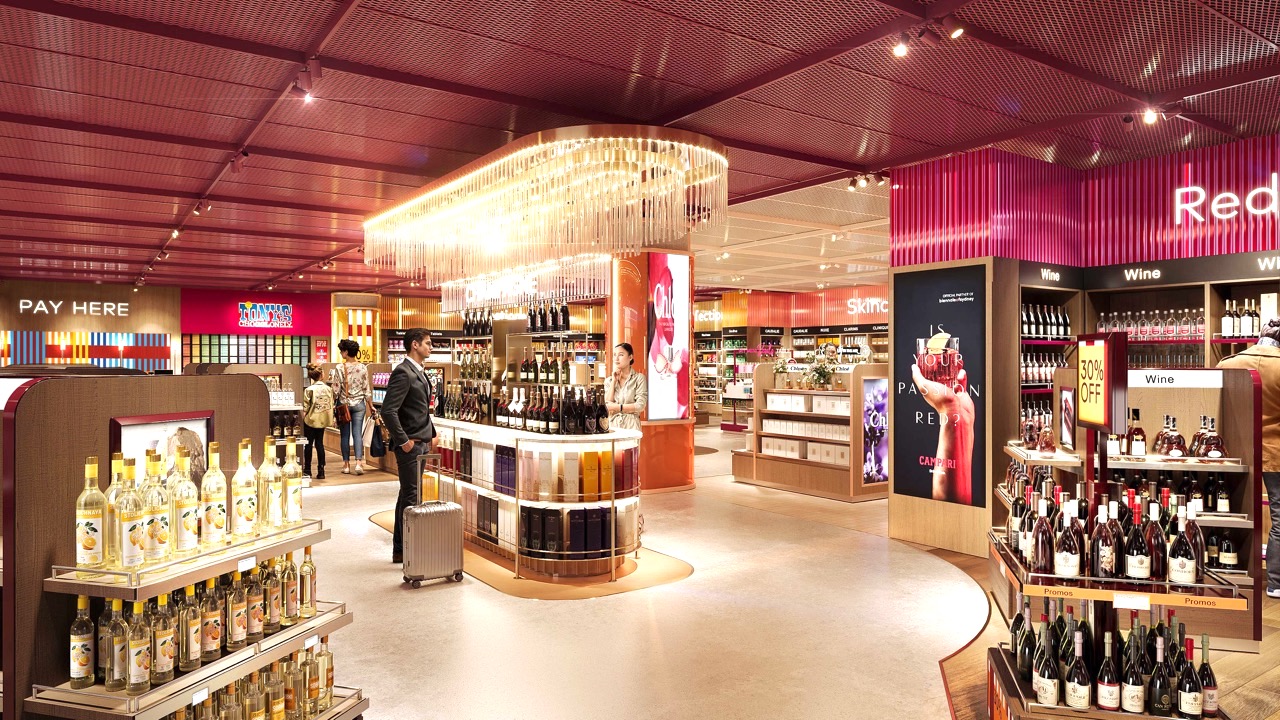
De Bie said: “It’s fair to say that at Schiphol, in terms of duty free, we are coming from a little behind the average standard of peer airports. That has to do with our relative lack of space and the fragmented nature of the stores and the offer.
“What we will do early is to mirror the example of our Lounge 1 store, which will open in June, and bring together the various categories under one roof, with larger space applied to each. That is a first for Schiphol and is a big opportunity for brands to present themselves in an optimal way. We can introduce more customised furniture and we can plan shop-in-shops, which we never had before.
“We will play catch-up in this sense in Lounge 2 and 3, enlarging the spaces while allowing more room to house the top on-trend brands that we have been missing.”
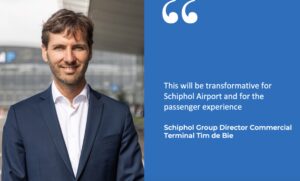
On the size of the opportunity, Duguit said: “Even as one of the leaders in the travel retail industry this is a unique opportunity for us. Amsterdam Schiphol will be our number two location worldwide. We have devoted important resource and our best worldwide experts to this project and it was our priority business target in 2024.”
Of the potential to develop the core category business, he added: “The fact that there will be proper core duty-free multi-category stores with bigger spaces will open up many interesting possibilities starting with allowing us to work in a deeper way with the assortment. You will be able to buy perfumes & cosmetics, spirits & wine or confectionery in the same store, which represents a big opportunity to enhance the passenger experience.”
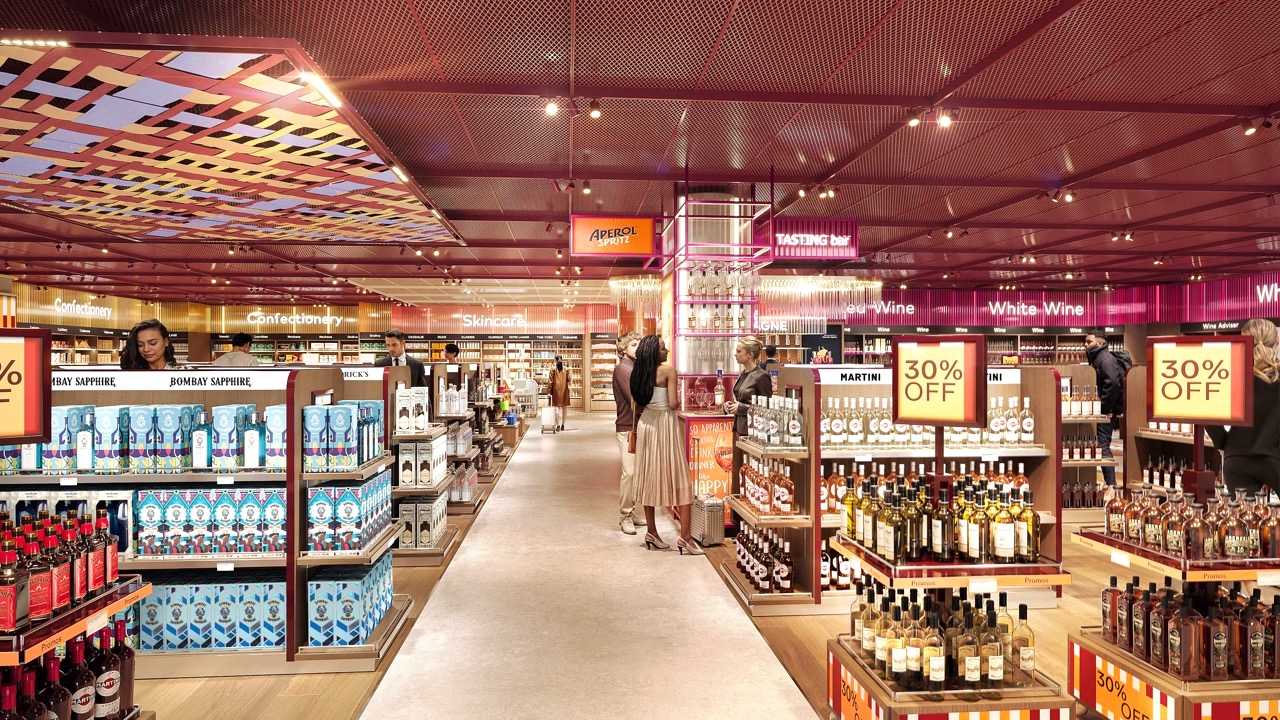
The business model advances the arrangement that Schiphol Group has had with Gebr. Heinemann for the Schiphol Airport Retail partnership – but with crucial added resource.
De Bie said: “The 70:30 shareholding is just a small deviation from the 60:40 arrangement we had with Gebr. Heinemann. That structure was a positive experience and gave us confidence in operating a JV.
“Our view was, let’s give a little bit more to the travel retailer, which plays a big role of course in value creation and offers an incentive in terms of the profitability of the joint venture.
“At Schiphol we have also scaled up our internal resources to manage this joint venture. We have three as opposed to one full-time team manager to help our interaction and involvement. Beyond that we have a dedicated digital team and a dedicated marketing team to support this partnership on a daily basis.

“So we really are putting much more resource behind this, because we also want to be more actively involved than in the past, and we want to bring this JV to new heights.
“We also have closely aligned incentives in the JV structure to push for the best possible passenger experience.”
De Bie added: “We believe that if we do that well, then the amount of revenues this creates will be maximised, and everyone gets their fair share. The whole focus of this joint venture is to make the pie as large as possible, not to battle over the last percentage of concession fee. That’s why aligned incentives make sense.”
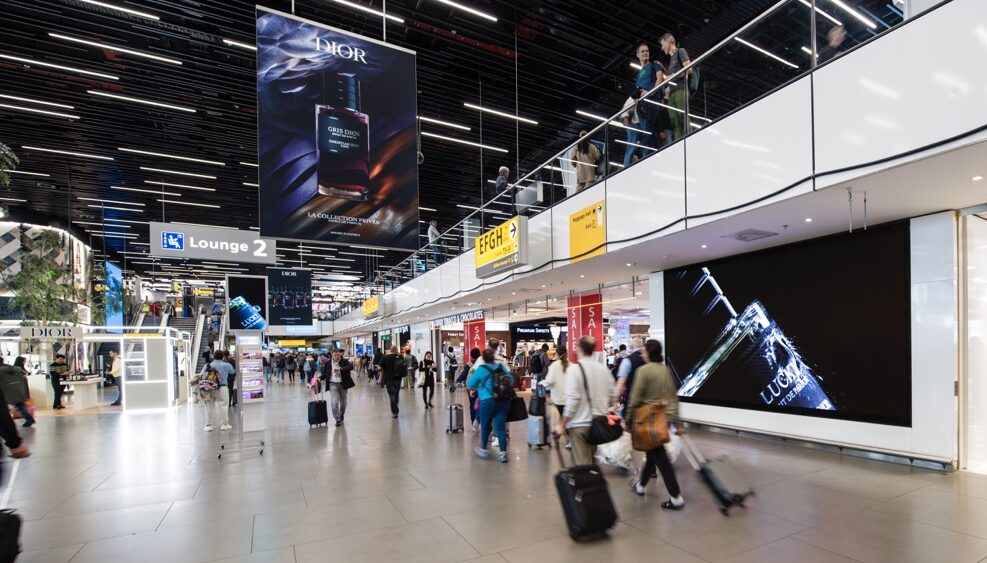
Duguit added: “What is important is that each party brings something to the table as a shareholder.
“With openness and transparency we can jointly decide the best way to optimise the passenger experience and drive sales, not just optimise our percentage. We share data, knowledge and experiences. This will have a big influence on how we collaborate. In this way it makes sense that we are in a JV, not just a concession.”
Duguit said that, as at other locations, Lagardère Travel Retail will maintain its focus on empowering local teams to make decisions independently, acting with the support of the back office in Paris.
Duguit also hailed the process as “interesting and intelligent with lots of opportunity to exchange ideas” – which de Bie said was a view borne out by other participants.
“The biggest compliment we got from the bidders who did not win was that it was well run and well communicated. From an airport viewpoint we met each milestone in the process on time, with a strong team internally and the right advisors.
“All the major [duty-free] players were involved and showed strong commitment, which meant that we had really high-quality bids. It was also super-interesting for us to learn from them through the multiple rounds of interaction and the many expert sessions on sustainability, on digital, on marketing and other elements. This all helped to frame our strategy around these core categories even further.
“While the financials are important, passenger experience is the key metric for us. That trumped everything in our deliberations. It also led to some interesting discussions around striking that balance between an extra point or two of margin versus having the freedom to ensure pricing remains really attractive.”

On how Lagardère Travel Retail stood out, de Bie said the French travel retailer combined “attractive assortments, strong interaction with the brands and the assurance that we will have really attractive pricing on most products, where price elasticity is important. And all of that backed up with promotional and marketing strategies. The package really came together and gave us the confidence that we will have a much better and attractive offer for our passengers.”
From now until the contract begins on 1 May, transitions teams will work on the handover. In the next two to three years redesign and refurbishment of all existing stores will follow.
Duguit said: “The challenge is to manage the handover but also to quickly show an evolution in the retail planning, in the assortment, in the price positioning and the elements we have agreed as partners.”
Duty free was identified as one of the key pillars of Schiphol’s updated retail and food & beverage strategy amid moves to transform the entire airport – which involves a combined €6 billion investment across hundreds of projects in coming years. In time the airport will also introduce updated design of space to address the fragmentation of the current pier system.
De Bie said: “This tender is part of the bigger movement that Schiphol is making to assume more control over the airport than we had a few years back. That applies, for example, across our partnership base, our security and how we design and develop the terminals.
“With the new design vision you will see more consistency in the look and feel compared to before.
“What is clear from an airport perspective is that we are committed to the investment necessary to make the experience a delight. We are putting multi-million dollar investments into all the passenger lounges.
“After Lounge 1, lounges 2, 3 and 4 will follow alongside the big store investments with Lagardère Travel Retail and of course the brands. We are also making huge investments in optimising the logistics and supporting our people working in those stores, so it is all areas combined. This will be transformative for Schiphol and for the passenger experience.”
*As reported, Amsterdam Airport Schiphol served 66.8 million travellers in 2024, a rise of +8% year-on-year. The top five destination markets by passenger volume were the UK, Spain, Italy, the USA and Türkiye. ✈
TENDER ALERTThe Moodie Davitt Report is the industry’s most popular channel for launching commercial proposals and for publishing the results. If you wish to promote an Expression of Interest, Request for Proposals or full tender process for any sector of airport or other travel-related infrastructure revenues, simply email Martin Moodie at Martin@MoodieDavittReport.com. We have a variety of options that will ensure you reach the widest, most high-quality concessionaire/retailer/operator base in the industry – globally and immediately. The Moodie Davitt Report is the only international business media to cover all airport or other travel-related consumer services, revenue-generating and otherwise. Our reporting includes duty-free and other retail, food & beverage, property, passenger lounges, art and culture, hotels, car parking, medical facilities, the internet, advertising and related revenue streams. Please send relevant material, including images, to Martin Moodie at Martin@MoodieDavittReport.com for instant, quality global coverage. |







